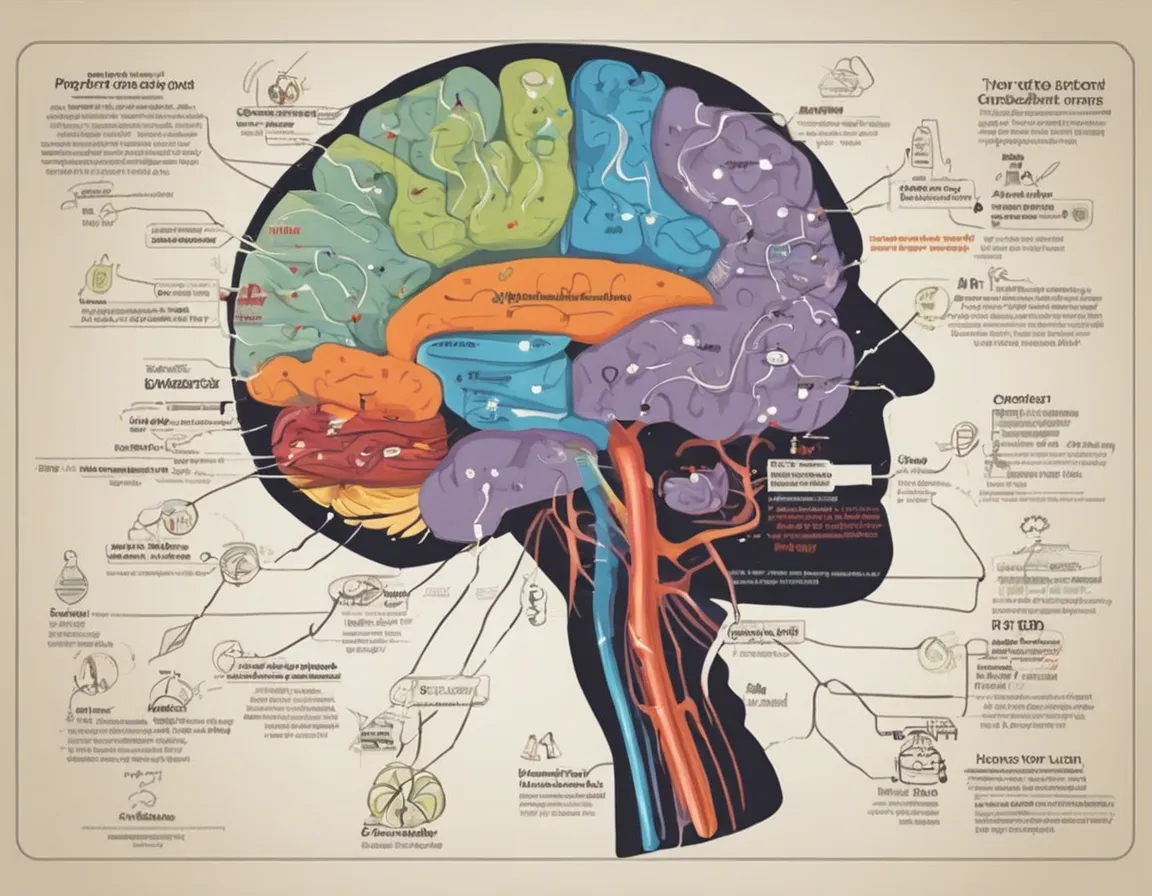
Ever wondered what stress does to your body and mind? Dive in to find out how stress impacts you and ways to manage it effectively.
Physical Symptoms

Stress can cause a range of physical symptoms, such as headaches, which result from the body’s response to tension. The muscles around the head and neck tighten up, leading to pain and discomfort.
Muscle tension is another common sign of stress. When you’re stressed, your body releases hormones that prepare you for ‘fight or flight,’ causing muscles to contract and stay tight, which can lead to aches and stiffness.
Stress also affects your digestive system, potentially causing stomachaches or changes in appetite. This happens because stress triggers the release of certain hormones that can disrupt normal digestive functions, leading to discomfort.
Emotional Impact

Stress can lead to feelings of anxiety, making you feel constantly worried or on edge. It’s common to experience a racing heart, sweaty palms, or even trouble sleeping when you’re anxious.
Another impact of stress is irritability. You might find yourself getting annoyed more easily, snapping at loved ones, or feeling generally frustrated. This can strain relationships and make daily interactions more challenging.
Chronic stress can also affect your mood, leading to feelings of sadness or even depression. Over time, this can lower your overall sense of well-being and make it harder to enjoy activities you once loved.
Mental Health

Chronic stress can take a serious toll on your mental health, leading to issues like depression and anxiety. When stress is constant, it can change how your brain functions, making it harder to manage your emotions and thoughts.
Long-term stress affects the brain’s structure, particularly areas involved in memory and learning. This can make it difficult to concentrate or remember things, adding to the feelings of frustration and helplessness often experienced in anxiety disorders.
Managing stress is crucial for mental well-being. Simple practices like mindfulness, regular exercise, and adequate sleep can make a big difference. These habits help your brain handle stress better, reducing the risk of developing serious mental health issues.
Behavioral Changes

When people are stressed, they might start eating more than usual. This happens because stress can trigger cravings for comfort foods, leading to overeating. It’s a way for the body to cope with the tension.
Stress can also cause you to avoid social interactions. Feeling overwhelmed might make you want to be alone, which can lead to isolation. This can create a cycle where avoiding others increases feelings of stress.
Another behavioral change due to stress is a lack of motivation to exercise. When you’re anxious or worried, finding the energy to stay active can be tough. This can negatively impact your physical health and overall well-being.
Stress Management

Regular exercise can significantly reduce stress levels. Activities like walking, jogging, or yoga help release endorphins, the body’s natural stress relievers. Even a short 20-minute walk can clear your mind and improve your mood.
Mindfulness practices, such as meditation and deep breathing, can help you stay present and reduce anxiety. Taking a few minutes each day to focus on your breathing can create a sense of calm and control, making it easier to handle stress.
Proper sleep is essential for managing stress. Aim for 7-9 hours of quality sleep each night to help your body recover and maintain emotional balance. Good sleep hygiene, like keeping a consistent sleep schedule, can improve your overall well-being.
Conclusion
Understanding how stress affects your body and mind is the first step to managing it better. By recognizing the symptoms and implementing stress-reducing techniques, you can lead a healthier, happier life. Remember, it’s all about finding balance and taking care of yourself.




